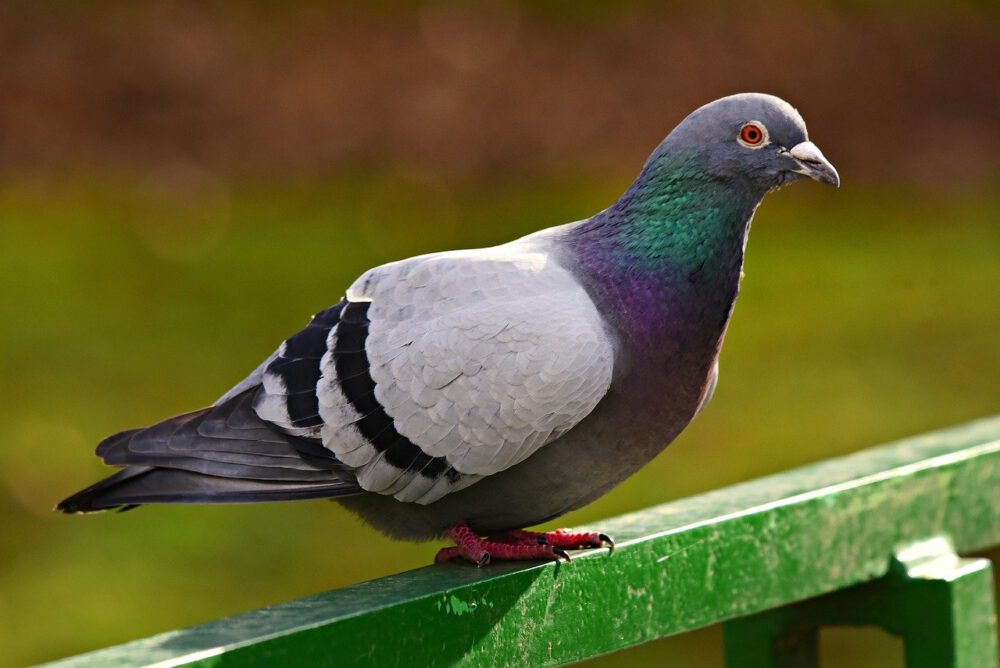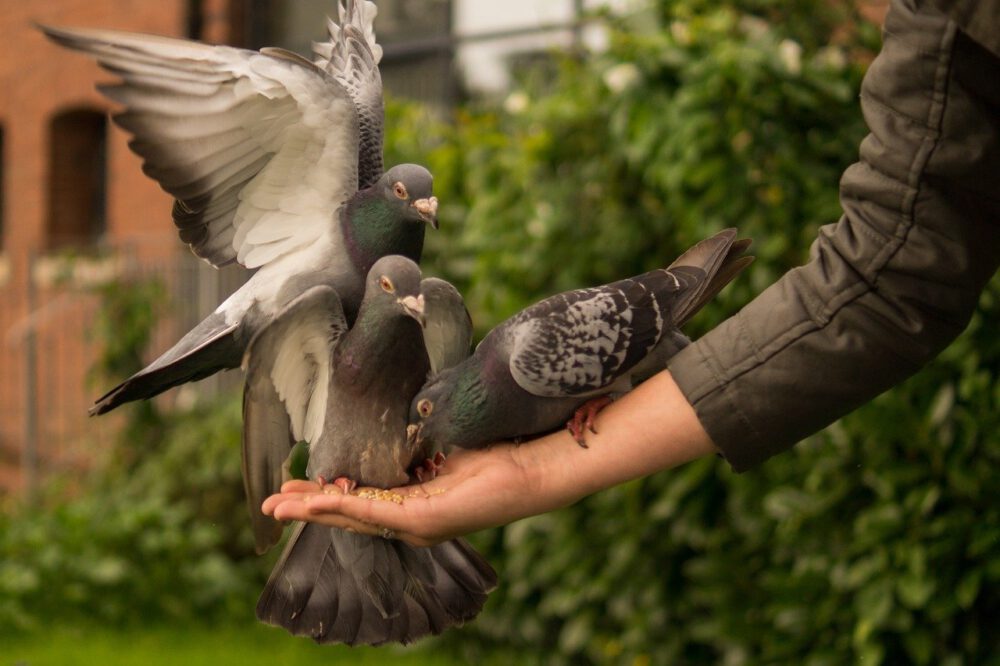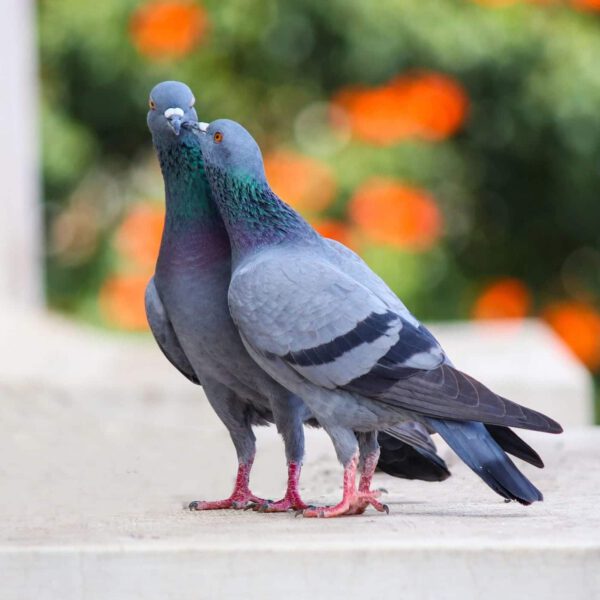The common names for the pigeon are the pigeon, dove, blue rock pigeon, rock dove, wild rock pigeon, rock pigeon, and feral pigeon. But there are 350 recorded varieties, the most common being the feral pigeon. And believe it or not, pigeons are pretty cool birds. In fact, they saved thousands of human lives during World Wars I and II. You see, they have been used as messengers for centuries. Ancient Greece even carried the results of the Olympic Games.
Pigeons are trainable and totally loyal to their mate and home. They can even return from 1300 miles away on their own. Want to know more about these incredible birds? Keep reading to find out more from Covenant Wildlife Removal.
Pigeon Facts
Appearance:
The pigeon is a dark bluish-gray-headed bird with glossy greenish with reddish-purple iridescent feathers around the neck and wings. The eyes are a red or orange iris with a pale inner ring. The bill is black with off-white, and their feet and legs are red. Their lower back feathers are white. But perhaps the most distinctive marking on a pigeon is the twin black wing bars. The life expectancy of a pigeon is 3 to 15 years, depending on predation and human interaction.

Behavior:
Pigeons can fly at altitudes of 6000 feet or more and traverse 6-700 miles in a single day. And it is thought that they use a sort of magnetic location to navigate their way. But we do know they can see in color, like humans. Additionally, they are one of only six species that can recognize their own reflection in a mirror.
Oh, and get this… they can learn the alphabet! They are highly intelligent and can learn the letters and even look at photos and pick people out.
Habitat:
The Pigeon is found in coastal areas and where humans live. But they originated from Europe, North Africa, and Asia.
Diet:
Most of the pigeon’s natural diet consists of seeds. Some will eat fruits, insects, and worms from the ground. And unfortunately, in urban areas, they have adopted a leftover fast-food diet.
Reproduction:
Pigeons breed year-round, but the peak seasons are spring and summer. And, they mate for life. Parent birds will lay two white eggs they take turns sitting on for 17-19 days.
Are Pigeons Dangerous?
The pigeon rose to pest status because of their sheer numbers, first and foremost. And they continue to flourish, with numbers seemingly never diminishing. No matter how many birds and animals consider them prey, pigeons are not in danger of going anywhere.
That said, they are a real danger to have in large numbers where you live, work, or play. Here is why.
1. These nuisance pests shed parasites with their feathers and droppings.
2. Pigeons build nests almost anywhere they can, making a mess of buildings, statues, eaves, signs, bridges, and more.
3. They can cause serious hazards to air travel. They often get sucked into jet engine intake fans or fly into windshields, causing great danger to the aircraft and the people aboard.
4. Their droppings contaminate public areas and, unfortunately, cause slip and fall accidents.
5. They deface public monuments with their constant defecation, making them almost unbearable to look at. And the droppings corrode monuments, ruining them for generations to come to enjoy.
6. Clogging intakes, filters, and fans, the feathers of large groupings of pigeons will damage types of machinery such as HVAC units, generators, and other machines requiring cooling fans.

Diseases Transmitted by the Pigeon
Pigeons are a health risk to humans, pets, and livestock. They can transmit fatal diseases as well as harboring fungus. And they bring along fleas, lice, ticks, mosquitos, and mites in their plumage. Finally, pest insects will reside in the filthy nests they keep, making the same nests a danger.
Here is a list of the known diseases pigeons carry and thus transmit.
- Histoplasmosis
- Salmonella
- Ornithosis
- Avian Flu
- West Nile Virus
- Eastern Equine Encephalitis
- Chlamydiosis
- Toxoplasmosis
- Tuberculosis
- Cryptococcosis
- Yersiniosis
These diseases and more can be transmitted through the birds, their nests, pests, droppings, etc.
Covenant Wildlife Removes the Pigeon
Pigeon and bird removal is challenging work that requires an experienced hand. At Covenant, we set up traps to catch the birds on your property and things like humane repellent spikes and netting to keep them from coming back. We can also recommend other bird deterrent devices that will help keep the birds away.
Covenant Wildlife Removal is a top-rated local family-owned, full-service wildlife trapping, removal, and repair service. We can remove a rat infestation before it becomes an extensive problem for you and your family.
Contact us or call 205-850-5760 to set up an inspection.
